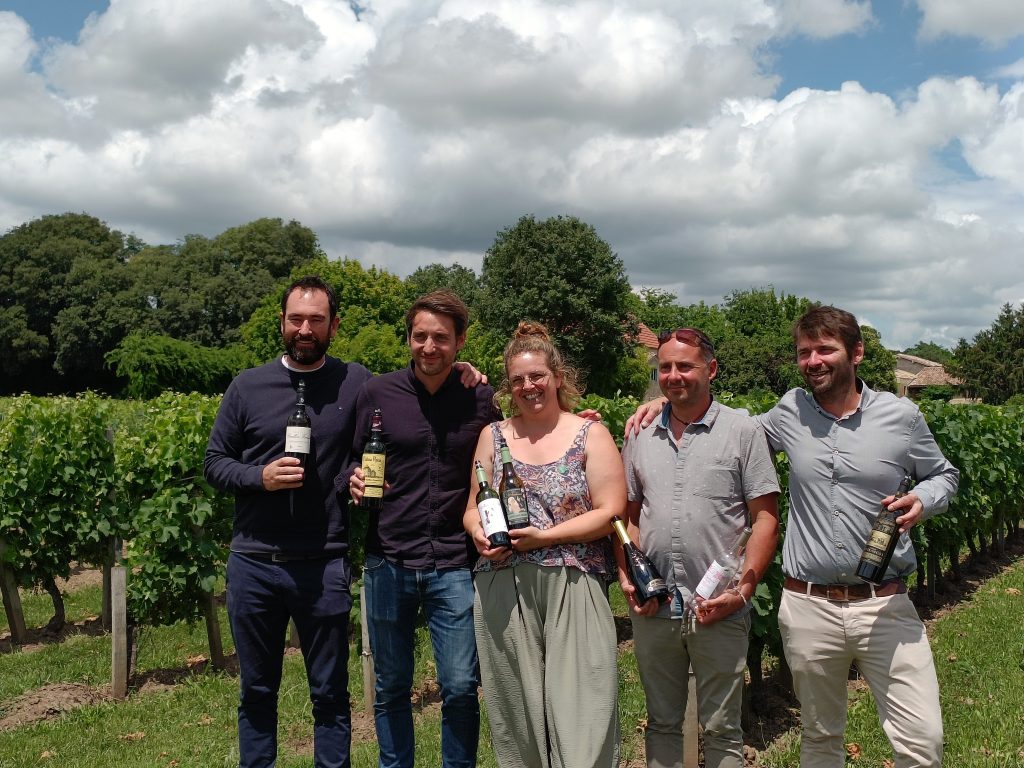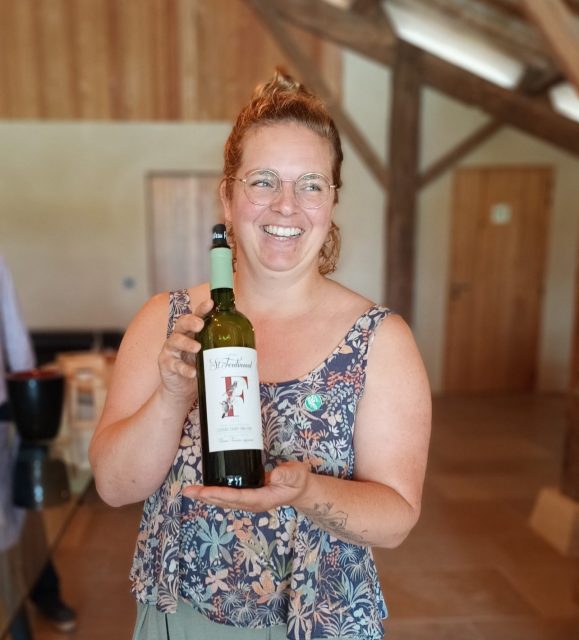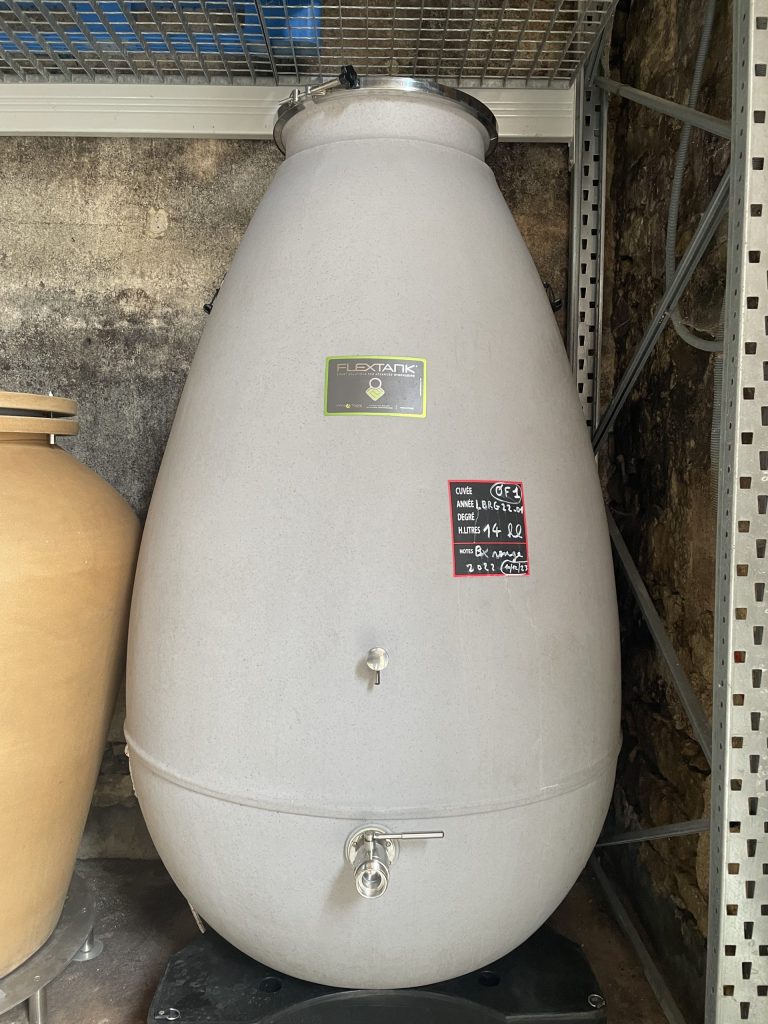Mavericks in Bordeaux?
Bordeaux is generally not known for its innovation – its reputation is for classic and elegant wines, and the mavericks and progressive winemaking culture that exist in other wine regions are not generally expected here. However, this belies the reality, as Arabella Mileham reports.

When it comes to the famed French region, young farmers are increasingly looking to shake up Bordeaux’s staid image, particularly with the new generation of younger vignerons, particularly those who belong to the Jeune Agriculteurs association and others who come to the industry from a variety of backgrounds.
Among these is Noemi Tanneau, the CIVB’s Winegrower of the Year 2023, who rose to attention when her wine was drunk by King Charles on his visit to Bordeaux in September 2023 (prompting the entire production to sell out within 3 weeks).
A social worker until 2012, Tanneau spent five years studying to be a winemaker, before buying a small craft vineyard, Chateau St-Ferdinand in Lussac, St Emilion which comprising 6ha divided into 13 parcels, which are planted predominantly with Merlot, along with 10% Cabernet Franc, ranging in age from 6 to 45 years old. The estate was certified organic in 2021 and, along with her team of two other women (herself, a secretary and a ‘garcon’) she concentrate on creating “atypical” wines with fresh and modern fruit flavours: three roses, including a sparkling rose, and an acacia barrel-aged rose, and five red wines.
“It’s a play for me, but hard to make,” she said.

Her cuvee F is a 100% Merlot aged in selected Vats for freshness, while her St Ferdinand 2021 Grand Vin, a fruit forward wine with morello cherry, and hints of rosemary is a case in point. “We want to feel only the expression of Merlot,” she said. “More people want fresh young wine.”
The bunches are mostly destemmed, but one cuvee is made using whole bunch which Tanneau admits is very unusual in Bordeaux.
Tanneau belongs to the Jeune Agriculteurs (JA) association, a only association devoted to younger farmers in France with members all under the age of 35. Unsurprisingly, the Bordeaux section of the JA is made up of predominantly winegrowers and although the numbers was once as low as only ten, this has climbed in recent years and now numbers more than 30.
Jean Mestreguilhem of Chateau Pipeau, who is also a co-president of the Saint-Émilion young farmers, points out that the first goal of the association is to cooperate and share best practise. It is all about communication, and having the organisation span across different appellations cultivates the cross-fertilisation of ideas. Additionally, winegrowers tend to act more as a mutual than focusing on their individualism and can use their collective power to negotiate and access support. There is some government financial help for specific projects that you present, and Jeaune Agricultures benefit from better bank rates (though sadly not insurance) as well as priority for acquiring more land – although this doesn’t always work in practise!
Partner Content
As his co-president Paul-August Sauruee agrees, “We’re all in the same boat”.
However, the winegrowers tend to be looking at different ways of innovating and bring fresher, young wines to the table.

Laurent Duval, who farms 31ha of vines in Entre deux Mers (near Sauveterre de Guyenne) at his family business, Vignobles Duval, is another winemaker pushing the boundaries of traditional winemaking in Bordeaux. Although his bacgkround is in wine – Duval’s parents founded the business in 1976 and he has worked there himself since 2005 – he has introduced techniques such as automated pigeage into his winemaking. This technique of pushing the cap of grape skins down into the fermenting juice is more commonly found in Burgundy (where it is done by hand) but very rarely in Bordeaux, which favours pumping over (remontage). Traditionally, it was felt been that pigeage may be too harsh a process, however with chateaus increasingly toning down their use of remontage (most famously at Calon Ségur) or shortening it (as at Montrose), Duval is taking things a step further. He argues that pigeage optimises the colour and aromas of the wines and when combined with different ageing techniques – such as aging 50% of the wine in polymer eggs (another rarity in Bordeaux) for 18 months – it produces a soft, gentle wine with lots of fruit and no harsh tannins.
Duval bought the Flextank eggs, which are already used by producers in the South of France, Chile and Australia, around two years ago, after seeing them in action at a wine fair.
“The eggs help smoothen rounded tannins, so between the pigeage and the eggs, we have velvety tannins,” he explained.
Currently, he only has one of the polymer eggs, but is planning to add more to enable him to experiment with both a white wine and a red blend, as well as a clay amphora to produce a red wine, as well as white Sauvignon Blanc.




